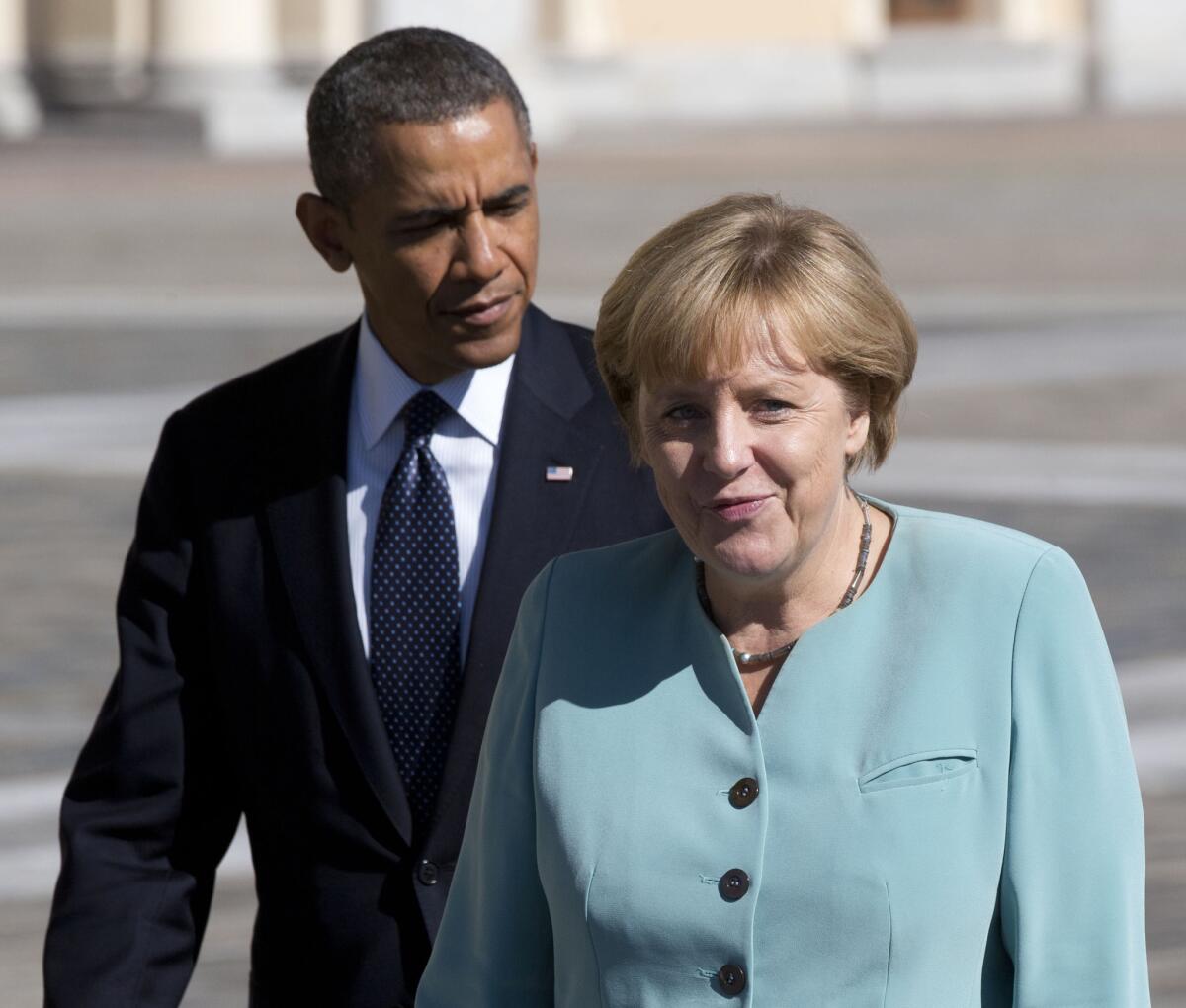Making up with Europe

- Share via
President Obama is slowly extricating the U.S. from its Bush-era fixation on the Middle East. But he is turning his attention in the wrong direction. Europe, not Asia, should be his main focus.
The future of liberal democracy will depend on its ongoing success in its Enlightenment heartland. If it can overcome current troubles and thrive in Europe and the Americas, this will inspire the worldwide democracy movement over the long run. If it fails in the West, no amount of Asian realpolitik will compensate for the collapse.
The central challenge is to reconstruct the foundations of the transatlantic community. These are in urgent need of repair. The National Security Agency scandal is the latest in a series, including Guantanamo and Abu Ghraib, that has shattered America’s moral standing in Europe.
The United States has also been discrediting its economic leadership. The Lehman Bros. collapse revealed America’s failure to sustain its model of well-regulated capitalism. Europeans have been among the worst victims, especially young people, whose hopes have been destroyed by the economic crisis. And the debt limit fiasco underscored Washington’s apparent incapacity to take its economic responsibilities seriously.
European estrangement comes just as the European Union is threatening to unravel. A British referendum on Europe is likely over the next couple of years, and the chances of a “no” vote are substantial. An exit by Britain would be bad enough, but nationalist parties may well become a major force in the European Parliament after the next elections. Such setbacks would further delegitimize the technocratic rule of Brussels and Frankfurt. With the continuing German insistence on austerity, the populist reaction could accelerate, dissolving Europe into petty sovereignties ripe for nationalist demagogy.
A serious U.S. diplomatic effort can help contain this threat. A trade deal with the EU would dramatize the costs of exit to British voters. A breakthrough accord between the Federal Reserve and the European Bank would provide the best way to soften the austerity measures that have wreaked economic havoc on Southern Europe.
But the NSA scandal is already disrupting progress. Germany is insisting that any trade deal with America be joined to an agreement on surveillance. This threatens to paralyze the EU effort to deal with the U.S. with one voice. The Obama administration should break this impasse by making the first move to resolve the spying scandal.
Rather than quietly releasing European leaders from 24-hour surveillance, Obama should aim for a legally binding executive agreement that would grant all citizens of the U.S. and the EU the same protections against spying by both the NSA and European intelligence agencies. While Congress’ efforts to rein in the NSA are likely to have a domestic focus, they would serve as a benchmark for parallel negotiations with Europe. The new initiative would not only enhance the privacy rights of citizens on both sides of the Atlantic,it would express a renewed commitment by both sides to the rule of law.
Similarly, the administration should give priority to a law eliminating the legal authority of one house of Congress to destroy the full faith and credit of the nation. Republican and Democratic leaders have voiced support for a measure that would greatly restrict the power of the tea party to play politics with the debt ceiling.
Under their proposal, the president would announce, on an annual basis, the increase required to avoid default. Congress would retain the power to reject the president’s initiative by a simple majority vote of both houses. If the president responded with a veto, two-thirds majorities could still insist on ultimate control.
Nevertheless, the statute would effectively make it impossible for Congress to undermine the 14th Amendment’s command that “the validity of the public debt of the United States … shall not be questioned.” The challenge, again, is for the administration to make this a high-priority matter and mobilize bipartisan leadership support.
Progress on a transatlantic agreement on surveillance and a statute on the debt ceiling would not be enough to repair the moral and economic damage of a decade. But it would help catalyze the larger breakthroughs that can sustain the transatlantic community as a powerful force for liberal democratic values in the 21st century.
Bruce Ackerman is a professor of law and political science at Yale University.
More to Read
A cure for the common opinion
Get thought-provoking perspectives with our weekly newsletter.
You may occasionally receive promotional content from the Los Angeles Times.









